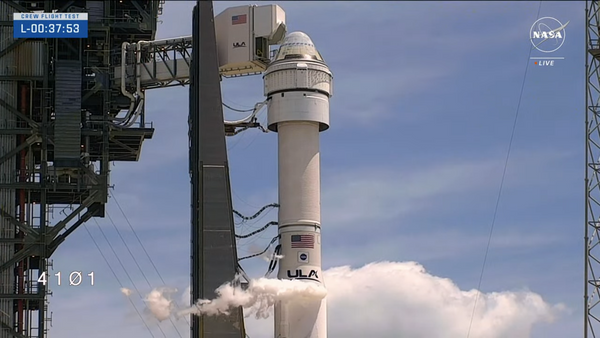
Lai Ching-te’s first day as president of Taiwan has been marked by large protests against the opposition over a controversial bill in parliament, foreshadowing a difficult first term for the leader, who lacks a legislative majority.
Thousands of Taiwanese citizens gathered outside the legislative yuan to protest against attempts by the opposition parties to push through a bill without review, which would give parliamentarians extraordinary powers to question anyone, including the president, under threat of fines and jail time. On Friday one MP was hospitalised after the parties came to blows over the debate.
Critics of the opposition’s actions warned that the chaos and disunity being fomented plays into the hands of China, which has vowed to annex Taiwan and considers its government to be separatists.
Protests began in the morning and by late afternoon had swelled to several thousand as people finished work and school, undeterred by a thunderstorm and torrential rain.
Speakers included activists and politicians and Nymphia Wind, the Taiwanese drag queen who recently won Ru Paul’s Drag Race. Wind, who is US-based and drew formal congratulations from the former president Tsai Ing-wen, said Taiwan’s small population meant politics was “all around” and affected everyone daily.
“We need to defend what we care about today, and everyone should stand up for it,” she said.
A nearby Presbyterian church, known for its support of the activist community, had thrown open its doors for food and shelter, projecting livestreams behind the pulpit of the sitting – where opposition MPs held control and wore body armour. The stream paused only for the 7pm service which saw the mostly young crowd pray and sing hymns in Taiwanese. Many filmed the surreal scene on their phones.
The legislature was expected to keep sitting until midnight. Protesters vowed to stay outside.
Experts have called the bill potentially unconstitutional, and a threat to national security as it appeared to compel answers regardless of whether the information was protected or sensitive, and could punish legislators for vaguely defined acts of “contempt of congress”.
Lai won January’s election in a three-way race, but his party – the ruling Democratic Progressive party lost control of the legislature. Instead the two major opposition parties, the Kuomintang (KMT) and newcomers, the Taiwan People’s party (TPP), hold the majority and have teamed up to push through the bill, which also includes $61bn in infrastructure spending which would likely cripple Taiwan’s budget, including for defence.
Taiwan has boosted its defence spending to deter attacks or attempted invasions by China.
On Friday the parliament descended into a brawl as the DPP sought to stop the opposition parties pushing the bill through, resulting in one new MP, former civil society worker Puma Shen, was hospitalised.
On Monday, Shen accused the KMT and TPP of putting through a bill they did not even understand. “Anything can be accused of contempt of parliament,” he said.
“If China is to publish a list of Taiwan independence activists, those legislators can summon them to question.”
In a sign of the new administration’s concern over the incident and what it foretells about this new term, Lai referenced Friday’s fracas in his inauguration speech.
“Taiwan’s people have high expectations for rational governance among political parties. Apart from competition, parties should also believe in cooperation,” he said on Monday. “The majority should respect the minority, while the minority accepts majority rule. Only then can we avoid conflict and maintain a stable and harmonious society.”
Jessica Fang, a 28-year-old IR policy student said she was protesting against the way the KMT and TPP were disregarding Taiwan’s democratic processes.
“They’re setting a dangerous legislative precedent that they can pass a law like this in the future, and if we don’t stop them right now they’ll think nobody cares,” Fang said.
“Secondly, it’s poorly written legislation. The push for legislative reform is valid and legitimate but this is not the way to do it.”
Guo, a 17-year-old high school student said the bill was “against procedural justice” and accused the TPP of deviating from its core values, which had drawn so many young people to the party during the election campaign.







